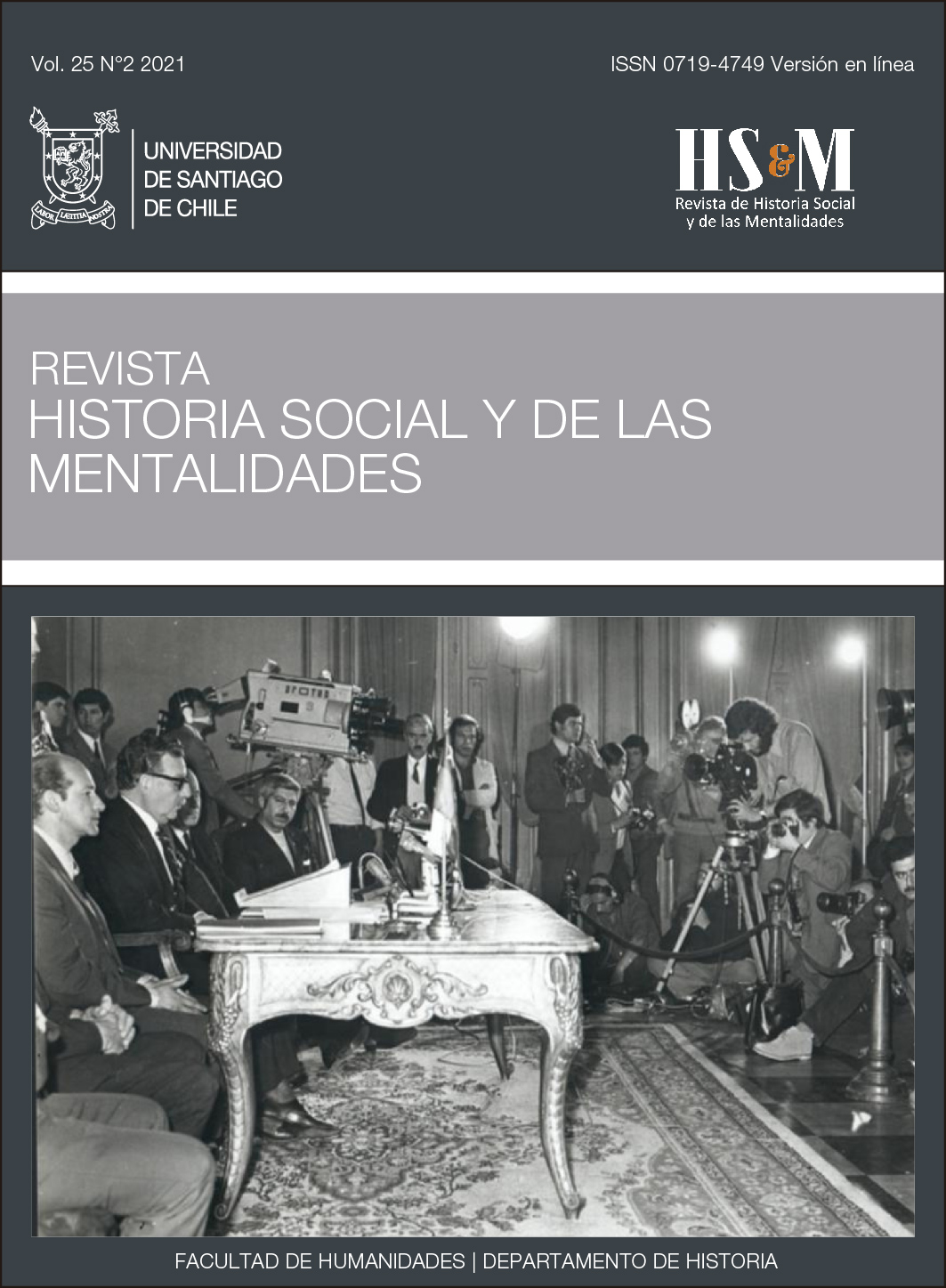THE JÂNIO QUADROS'S GOVERNMENT THROUGH THE PAGES OF THE NEWSPAPER CALLED ÚLTIMA HORA (UH)
DOI:
https://doi.org/10.35588/rhsm.v25i2.4869Keywords:
Jânio Quadros, Last hour, Independent Foreign Policy, History of the pressAbstract
In 1960, Jânio Quadros was elected president of the Republic. By this time, he was not linked to any major Political Party and, despite of this, had had successive electoral victories. Regarding the main circulation newspapers in the country, although many of them considered his rise a little suspicion, they ended up supporting him in the election. However, the newspaper called Ultima Hora (UH) did not legitimize the candidacy and remained faithful to the political labor culture, opposed to the bases that Quadros used to defend. Thus, this article aims to analyze how this communication mean portrayed Jânio Quadros's government, from his inauguration in January 1961 until his resignation, less than seven months later.
Downloads
References
Benevides, Maria. A UDN e o udenismo. Coleção Estudos brasileiros; v. 51. Paz e Terra, 1981.
Benevides, Maria. O Governo Kubitschek: desenvolvimento econômico e estabilidade política, 1956-1961. Estudos brasileiros, v. 8. Paz e Terra, 1976.
Biroli, Flávia. “Liberdade de imprensa: margens e definições para a democracia durante o go-verno de Juscelino Kubitschek (1956-1960)”. Revista Brasileira de História, vol. 24, no. 47, 2004, pp. 213-240. https://doi.org/10.1590/S0102-01882004000100009
Chaia, Vera. A liderança política de Jânio Quadros (1947-1990). Humanidades, 1991.
Ferreira, Jorge. João Goulart: uma biografia. Civilização Brasileira, 2011.
Fidelis, Thiago. Preto no Branco: as crises políticas institucionais pelas páginas de O Estado de S. Paulo e Ultima Hora (1954/1956). Tese (Doutorado em Ciências Sociais) – Univer-sidade Estadual Paulista “Júlio de Mesquita Filho”, Faculdade de Ciências e Letras (Cam-pus Araraquara), 2018.
Fidelis, Thiago y Heloísa Paulo. “A Bordo Do Santa Maria: A Luta Anticolonialista E A Oposi-ção Portuguesa Pelas Páginas De Ultima Hora (1961)”. Revista História das Ideias, Coimbra, Vol. 38, 2º Série, 2020, pp. 95-117. https://doi.org/10.14195/2183-8925_38_5
Hippolito, Lucia. De raposas e reformistas – o PSD e a experiência democrática brasileira (1945 - 64). Coleção Estudos Brasileiros, v. 85. Paz e Terra, 1985.
Loureiro, Felipe. “Varrendo a democracia: considerações sobre as relações políticas entre Jânio Quadros e o Congresso Nacional”. Revista Brasileira de História, vol. 29, no. 57, 2009, pp. 187-208. https://doi.org/10.1590/S0102-01882009000100008
Manzur, Tânia. “A Política Externa Indpendente (Pei): Antecedentes, Apogeu E Declínio”. Lua Nova, no. 93, 2014, pp.169-199. https://doi.org/10.1590/S0102-64452014000300007
Mendonça, Marina. O demolidor de presidentes. Códex, 2002.
Moniz Bandeira, Luiz. De Martí a Fidel. A Revolução Cubana e a América Latina. Civilização Brasileira, 2009.
Queler, Jefferson. Entre O Mito E A Propaganda Política: Jânio Quadros e sua imagem públi-ca (1959-1961). Tese (doutorado) - Universidade Estadual de Campinas, Instituto de Filo-sofia e Ciências Humanas, Departamento de História, 2008.
Downloads
Submitted
2021-04-05Published
Issue
Section
License
Copyright (c) 2021 Revista de Historia Social y de las Mentalidades

This work is licensed under a Creative Commons Attribution-NonCommercial-NoDerivatives 4.0 International License.













